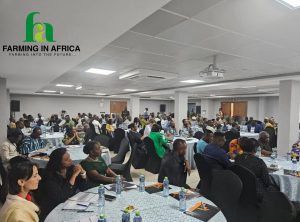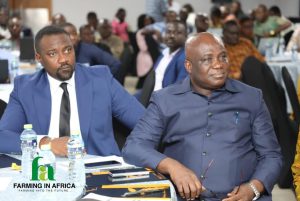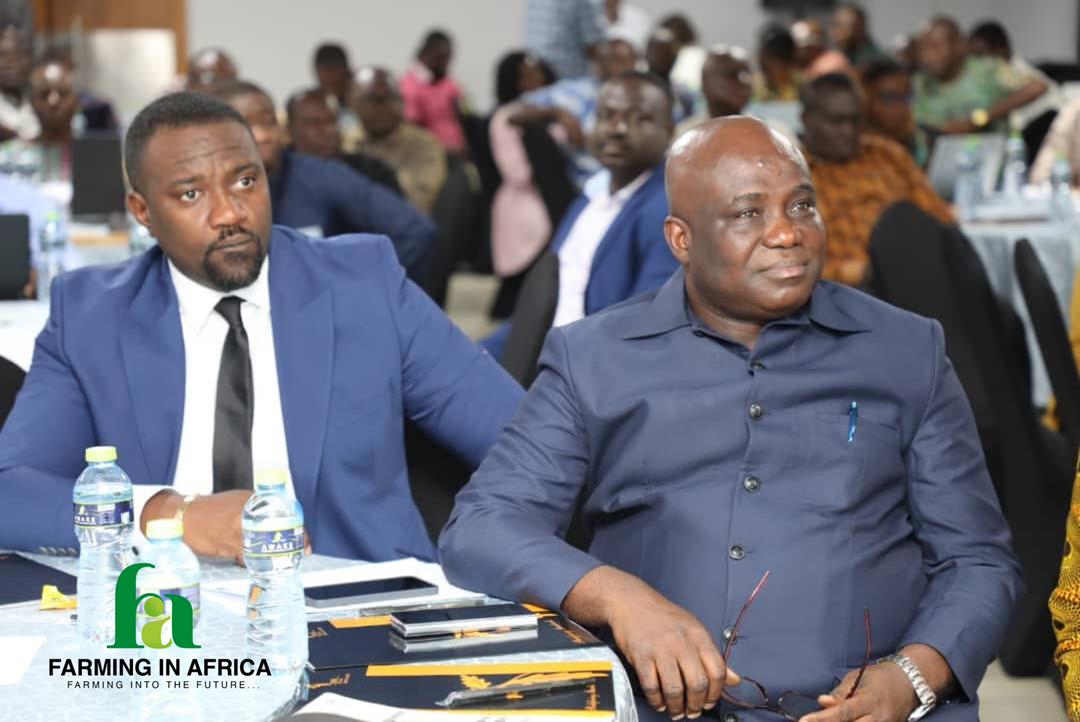At Farming in Africa (FIA), we strongly believe that shaping the future of Ghana’s agriculture requires active participation in national policy dialogues. It is through these high-level conversations that we can ensure livestock development remains a strategic pillar of the country’s agricultural transformation.
We were honored to represent this vision at the recent Feed Ghana Strategic Document Validation Workshop, where our Founder and CEO, Fredrick Benneh Frimpong, contributed alongside key stakeholders across the agricultural value chain.
About the Feed Ghana Programme
The Feed Ghana Programme (FGP) is a national initiative under Ghana’s Agriculture for Economic Transformation Agenda. It aims to:
- Modernize agriculture
- Boost agribusiness competitiveness
- Reduce inflation
- Ensure food security for all Ghanaians
The programme also supports the Government’s vision for a 24-Hour Economy, positioning agriculture as a core engine for sustainable job creation and economic resilience.

FIA’s Participation at the Workshop
The two-day workshop was held at Oak Plaza, Accra, from 29th–30th May 2025, organized by the Ministry of Food and Agriculture (MoFA). It brought together a diverse group of stakeholders — from policymakers and agribusiness leaders to development partners and farmer organizations — to validate and contribute to the strategic framework for the FGP.
Day 1 Highlights
The session was officially opened by Hon. Eric Opoku, Minister of Food and Agriculture, who delivered a keynote address emphasizing agriculture’s pivotal role in building a resilient, 24-hour economy.
Following this, the National Coordinator of the Feed Ghana Initiative presented the programme’s framework and strategic pillars, laying the foundation for breakout discussions.
During the breakout sessions, FIA CEO Fredrick Benneh Frimpong passionately advocated for:
- The critical role of livestock genetics and breed improvement in enhancing sector productivity.
- The potential of leveraging superior genetics, such as improving local breeds like the West African Dwarf goat, to transform Ghana’s livestock sector.
- The connection between genetic improvement and key national outcomes — food security, youth employment, and economic growth.
Day 2 Recap
The second day focused on sector-specific group discussions. FIA contributed actively to the livestock and animal production group, bringing practical insights drawn from:
- Our on-ground work in breeding and genetics
- Our engagements with farmers, cooperatives, and institutions across Ghana and the wider region
- Our innovations in nutrition, infrastructure, and capacity building
FIA’s Continued Role in National Dialogue
Being recognized as a major stakeholder in this national policy process is a testament to FIA’s unwavering commitment to transforming livestock farming in Africa.
Through our ongoing work in:
- Breeding and genetics innovation
- Nutritional solutions
- Farm infrastructure development
- Capacity building and training
We remain dedicated to championing innovation and influencing national strategies that elevate the livestock sector.
Looking Ahead: Driving Change Through Collaboration
FIA is committed to contributing meaningfully to national conversations on food systems transformation — ensuring that livestock development is not an afterthought, but a strategic driver of Ghana’s agricultural future.
As the Feed Ghana Programme evolves, we look forward to:
- Deeper collaboration with government and development partners
- More seats at the table where policy is shaped
- Continuing to amplify the voice of the livestock sector in the broader agricultural landscape
Partner with Us to Shape the Future of Agriculture
At Farming in Africa, we are always seeking partnerships with organizations, institutions, and individuals who share our mission of driving sustainable change in Africa’s livestock sector.
Interested in collaborating on national or regional agricultural initiatives?
Contact us today to explore how we can work together to advance Ghana’s agricultural transformation.

